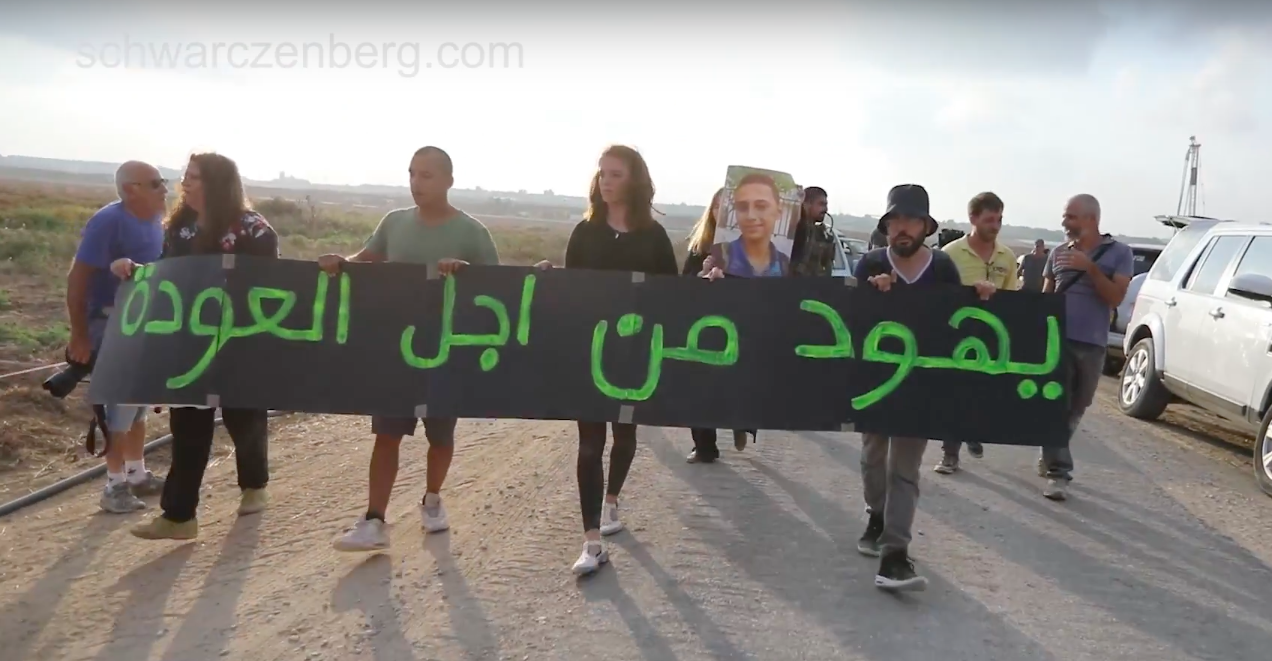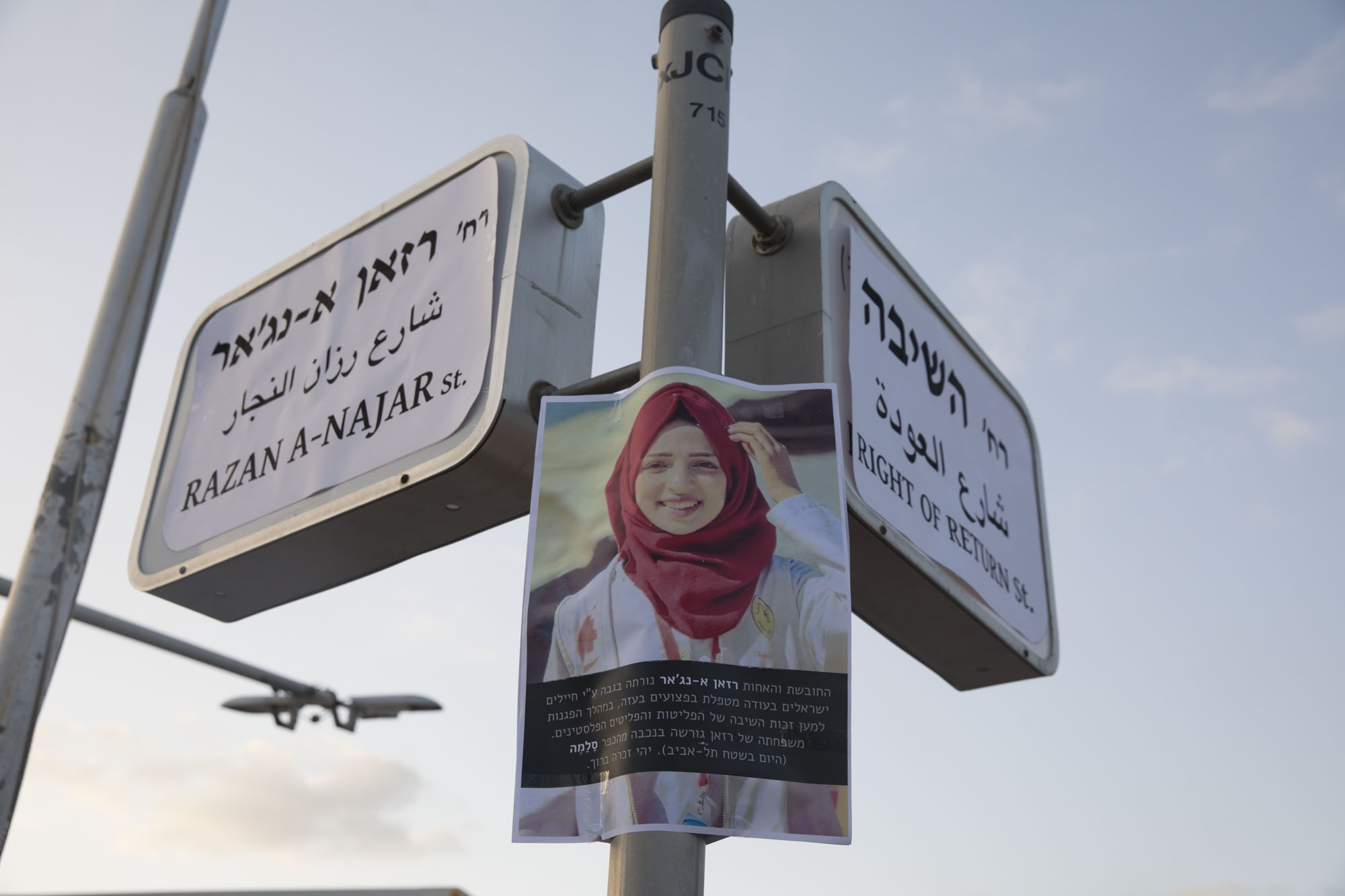Tag: Gaza
-
Video: Activists stand in solidarity with Gaza, are arrested by Israeli military and police
3rd August 2018 | Close to the Gaza fence Israeli and international protesters demonstrated at Gaza fence in solidarity with The Great Return March On Friday August 3rd, “Return”, a group of Israeli and international anti-Zionist activists, including activists from the International Solidarity movement, protested on the east side of the Gaza fence in solidarity with…
-
Israeli and international protesters demonstrated at Gaza fence in solidarity with The Great Return March
20th July 2018 | Close to the Gaza fence Israeli and international protesters demonstrated at Gaza fence in solidarity with The Great Return March On the 20th of July, Friday afternoon, a group of anti-zionist Israeli and international solidarity activists approached the Gaza siege fence at the same time that Gazans gathered by the fence on…
-
Salama remembers Razan
In response to a call for solidarity from Gazan women, a Jewish activist group dubbed “Return” gathered to hold a memorial for Razan AlNajar, at the location of her village of origin, Salameh. While thousands of women marched towards the border in the Saja’iya area in Gaza, the activists held a ceremony honoring Razan and the protesters…



